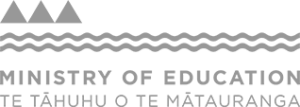CEO Update
Kia ora,
Once again, we finished this quarter with the highest ever number of personal harm reports. We also saw scam reports continue to remain at high levels and interest in our public outreach and education sector work grow.
The community’s interest in online safety has reached levels never seen before and it’s not hard to see why. Personal experiences of harmful digital communications are on the rise including hate speech, losses to cybercrime and scams continue to mount, and surging levels of misinformation is undermining trust across society.
One of the things we are observing is an increase in the number of people coming to us who have been harmed, but whose experience falls narrowly outside the provisions of the law. Regardless of what’s happening, Netsafe works to find solutions and advice for any person harmed online.
Netsafe understands first-hand that Aotearoa’s digital society is full of challenges, and some are extremely complex – but there are organisations people can turn to for help. There are processes, systems and tools that work – if only we can connect people to them fast enough.
One of the topics that has received a lot of attention recently is image-based sexual abuse as Parliament is currently considering the Harmful Digital Communications (Unauthorised Posting of Intimate Visual Recording) Amendment Bill. We support the proposed amendments as we know that strengthening the law is critical to helping people experiencing image-based sexual abuse. Another important component is ongoing public awareness related to sensitive topics like this.
This is why we worked with the Classification Office Te Mana Whakaatu and our respective youth action squads to collaborate on a campaign around the risks of taking and sharing intimate images. The campaign empowers young people to have positive kōrero – with peers, parents, teachers and whānau – about why nudes are sent, the need for consent and how to get help if things don’t pan out.
Given Netsafe’s purpose is to enable people to confidently access digital opportunities and reduce online harm, we have also been working hard on New Zealand’s first dedicated online safety week.
Netsafety Week is designed to Make Aotearoa Safer Online. The past year has only reinforced the reasons why we need to work together to try to make a difference and promote the positive power of the internet. As we begin the start of Netsafety Week, I’m grateful for the overwhelming support we’ve already received and look forward to sharing more with you.
Ngā mihi,
Martin Cocker
CEO

Report Contents
Senior Leadership Team Update
Sean Lyons, Online Safety Operations Centre Manager
It is really exciting to introduce myself here as the Manager of Netsafe’s newest business unit, the Online Safety Operation Centre. After nearly 15 years with Netsafe, working in technology, education and outreach it is a fantastic opportunity to be working so closely with the response service that Netsafe provides, helping New Zealand internet users make the most of their online world and trying to reduce any harm that they might experience.
The Centre is staffed by a highly trained and knowledgeable team of Online Safety Consultants that form Netsafe’s ”First Response” to the full range of issues that people face every day, and it is their job to ensure that Netsafe can provide the assistance, advice & guidance that they need or that we can help them to find the right port of call with one of our many partner agencies. That is how we ensure that their help experience is one that leaves them feeling that the support they have received has assisted them through what can often be complex and emotionally challenging situations.
It is this knowledge of how and where the complexities of internet experience are that we are also putting to use in a more proactive form. The Centre is working with the other parts of the Netsafe service to develop insights and understanding behind the issues that we see on a day-to-day basis. That knowledge will show up in the support we are able to provide to our colleagues in the Education and Schools team and in the public education work that our communications team develops.
But our ambition is that the Centre can work far beyond the walls of the Netsafe offices, and we want to engage more broadly with the NGO’s and help services, government agencies and the IT industry to keep developing a coordinated national response mechanism to a whole range of online safety challenges that require all our input to make sure we keep the internet as safe a place as possible for all our people.
This isn’t something we will do on our own, however, so I’d love to hear from you if you would like to know more about the plans for our Online Safety Centre, or if you would be keen to work with us to support our efforts to keep the New Zealand Internet as safe a space as it can be.

Quarterly Results
Between April and June 2021, Netsafe received 5,365 reports overall which is a 1.32 per cent increase compared to the last quarter. Netsafe experienced a 6.86 per cent increase in personal harm reports and our other reporting categories remained at a consistent level.
TOTAL REPORTS (1.32%*)
PERSONAL HARM REPORTS (+6.86%*)
SCAM & FRAUD REPORTS (+0.55%*)
OTHER REPORTS (-1.4%*)
*percentage change based on reports made to Netsafe when compared to the last quarter
Reports by age group
2.7%
00-12
10%
13-17
6.9%
18-21
37.8%
22-40
26.4%
40-64
16.2%
65+
Reports by region
Reports by gender
54.9%
FEMALE
5.1%
GENDER DIVERSE
40%
MALE
Personal Harm Reporting
There were 772 breaches of the 10 communication principles reported to Netsafe. This is a 13.8 per cent increase compared to the previous quarter. The most reported personal harm categories for the quarter are outlined below.
Reported breaches under the Harmful Digital Communications Act*
* Cases often involve breaches of more than one communication principle
Scam and Fraud Reporting
There were 2,891 scam reports made to Netsafe during this quarter which is a slight increase compared to the last quarter. Of these reports, 750 related to people losing money to scammers. People reported a combined loss of $5,236,150.53 which is a 1.5 percent decrease compared to the previous quarter. The average loss was $5,828.11 and is a 9.88 percent decrease from last quarter.
The most reported category related to products and services fraud followed by investment fraud. The average loss for someone in a products and services scam was $908.63 and the average loss for an investment scam was $24,390.59.
Scam reporting trends
Scam & fraud snapshot
$5.23M
REPORTED LOSSES
750
REPORTS WITH $ LOSSES
$5,828.11
AVERAGE LOSS
Top scam categories reported
Education Sector & Public Engagement Services
One of the key pillars in Netsafe’s strategy is about driving greater engagement with young people and the people that support them. We continue to undertake a variety of activities to ensure we achieve this outcome. This includes hosting Netsafe LIVE events (free seminars for parents, teachers, and school leaders), working with schools and kura, launching the Bare Facts alongside the Classification Office Te Mana Whakaatu and participating in Auckland University of Technology’s Sex + Respect week.
Some of the other activities included:
Education support
132 requests for support from 65 schools
About Netsafe
Find out more at www.netsafe.org.nz
BECOME A NETSAFE MEMBER
Netsafe is incorporated as a society and a charity. Our members represent a variety of backgrounds and countries, but all have one thing in common – an interest in keeping people safe online. Membership is free and easy to apply for. Find out more about being a Netsafe member or apply by completing our online form.
Find out more about being a Netsafe member, or apply to join today by completing our online form.
REPORT DATA
The data in this report represents the data available at the end of the quarter. Information related to the reports made to Netsafe reflect high-level trends and does not include easily identifiable information about specific reports/incidents.
If you have any queries about the information in this report, please email [email protected]


